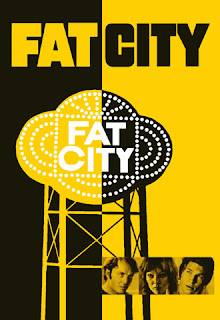Boxing films goes as far back as some of the first films. They are inherently dramatic, have a built-in central conflict, follow an intensely popular, yet controversial subject matter that is easy to pick up for newcomers, the sport of boxing was made for film, as some film critics have noted. From this substantial source material, filmmakers have shaped their own visions, and told surprisingly similar, yet very different stories. The underlying narrative has also changed over time, as societal attitudes shifted, and new topics entered into the cultural spotlight.


The early era of the boxing film, when camera's filmed in black in white, kicked off the trend of boxing films that focused on the struggles of the lower class. America, which had experienced a surge of socialism prior to World War II, had the Great Depression fresh in it's mind. Hollywood was under scrutiny by the federal government to prevent socialist, "anti-American" films from being produced. It goes without saying that directors did not take too kindly to this federal oversight, but it did leave an impact on the films, while still present, the socialist undertones of the film had to be subdued to make it past the HUAC.
The basic formula for one of these early boxing films is to have some good-old-boy with a lot of talent from a lower-class neighborhood bump into some people, make some connections and BOOM! boxing career. Heavily based on the classical hero's journey, there is still a lot of room for creativity, particularly in this new medium of film. These films explored and critiqued the virtues and vices of the boxing world, and by extension, the world as a whole through the use of a few central conflicts that Leger Grindon outlines in his synthetical essay
Body and Soul. The economic aspect of these early films is arguably a uniquely American perspective(or at least it was at the time). The concept of the American dream having shaped life for so many for so long, the films end up conveying to audiences that success is a juggling act of industrious, cold-blooded Capitalism
™with a traditionalist respect for your origins, a socialist care for the working class, and a strong moral compass. A diverse blend of starkly different cultural attitudes, molded by the American experience to eventually become the American Dream. These early films also took advantage of the new medium they had, to shift a little bit of the focus away from the fight, and onto the "audience" itself. Like a mirror, the camera reflects back onto the audience, asking you to reconsider your approach to boxing, the depiction of which seemingly getter more and more brutal and primitive as the years go by. This focus of the genre becomes more important as the years go by, as socialism loses favor in America, and domestic issues start becoming more and more important.
As the years went on, the genre focused itself less on the general economic issues of society, like poverty and greed, and more on the domestic issues.
On the Waterfront, technically a film about a boxer, has a central conflict revolving around a fraudulent union. This films portrayal of an oppressed group of people reclaiming control of their livelihood from a powerful corrupted elite still carries with it the original formula of the boxing movie. On the other end,
Raging Bull, considered a quintessential boxing film, focuses more on the effects boxing and hyper-masculine, hyper-competitive attitudes have on boxers. Granted, you can still connect
Raging Bull to a criticism of capitalism and western society in general by drawing the connection through boxing as a metaphor for capitalism, but the lines are getting less obvious, more subtle. What is being brought into the spotlight is LaMota's treatment of his wife and family. While scoundrels and womanizers are nothing new to the genre, in
Raging Bull, these issues take a central role in the film. Women are now fully fleshed out characters, rather than pitiable damsels.
On the Waterfront in particular uses it's female lead as a source on conscience and as a moral standard for it's protagonist to meet.

As the genre further, a split became apparent in the genre. Film became an ever more ubiquitous form of entertainment, and filmmakers had to make judgment calls, deciding between money-making mass appeal, or possibly unpopular films with the content they want to discuss. This is perfectly clear in two boxing films only 4 years apart,
Rocky and
Fat City. They still share a common boxing genre heritage, and both address the economic struggles of the "boxing class", but in
Rocky, it's only the setting. With or without the poverty, Rocky is still the awkward, aimless, but dedicated goof-ball we know.
Rocky considers poverty a temporary state, something that can be worked, or fought out of. This contrasts heavily with
Fat City, where poverty hangs on the city like a plague. The people are dirty, depressed, all but hopeless. They stumble around and do the bare minimum, sometimes putting in some effort, but in the end slumping back right where they started. Definitely not an inspirational zero-to-hero story.
Refined over the decades, boxing films take many forms, but from the things they all have in common we can piece together the over-arching narrative thread tying them all together.





























